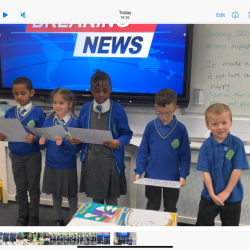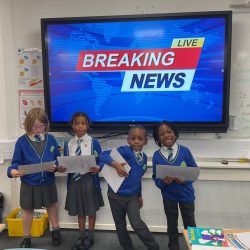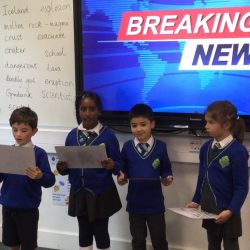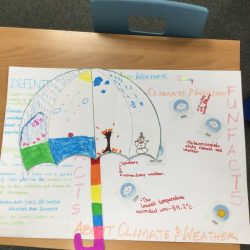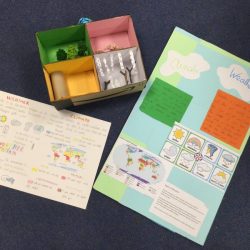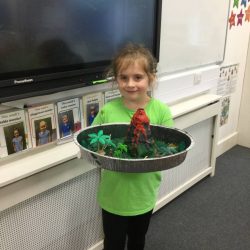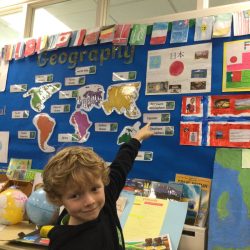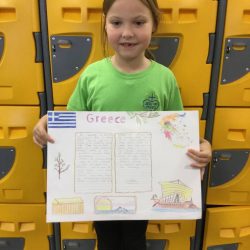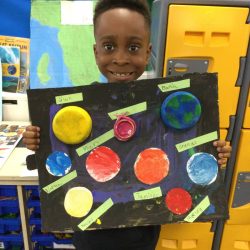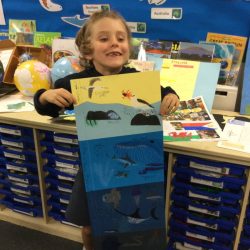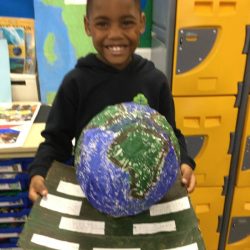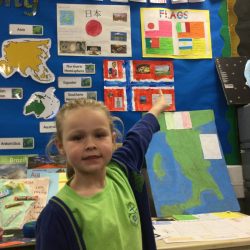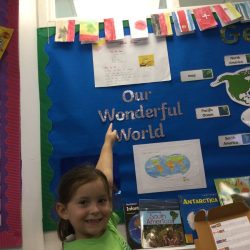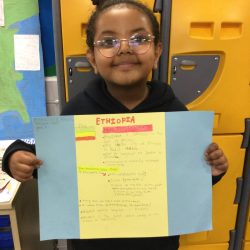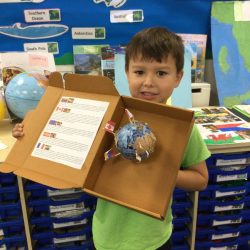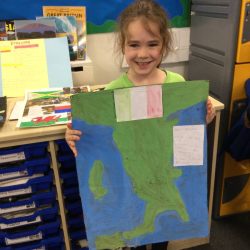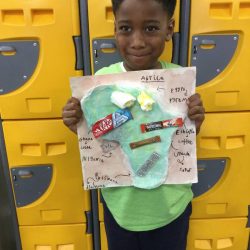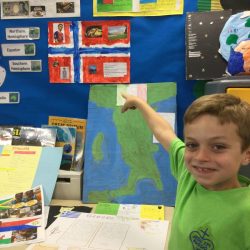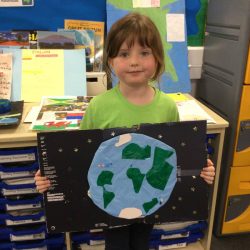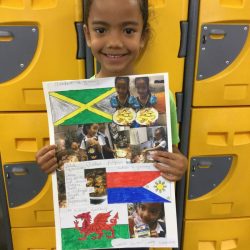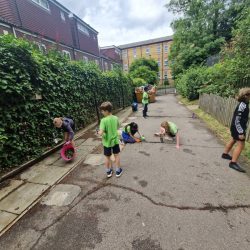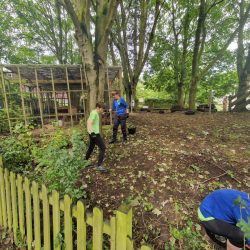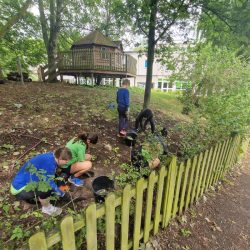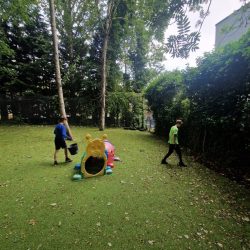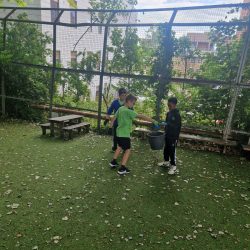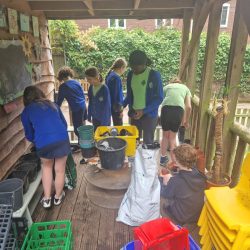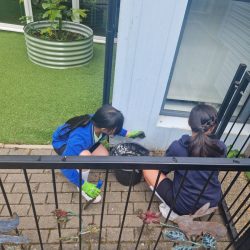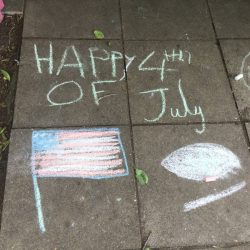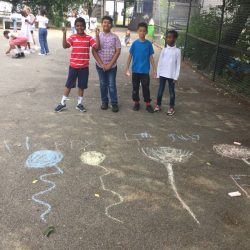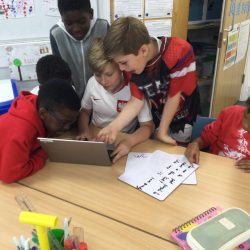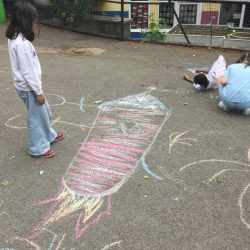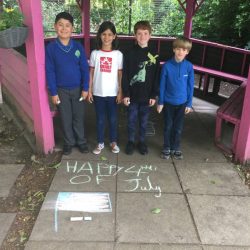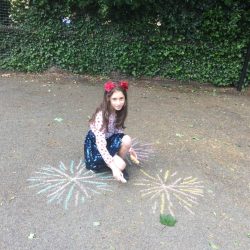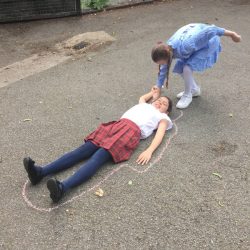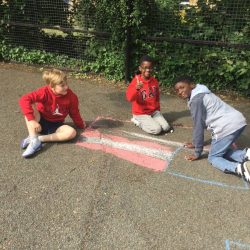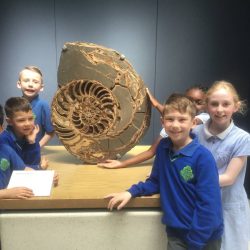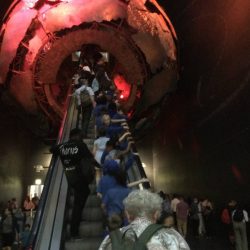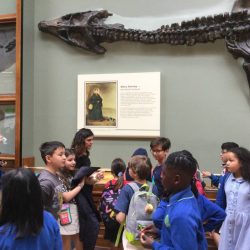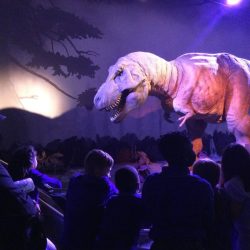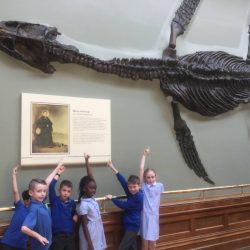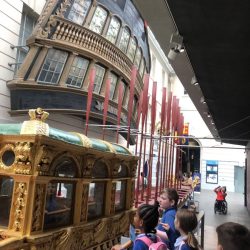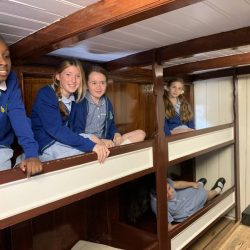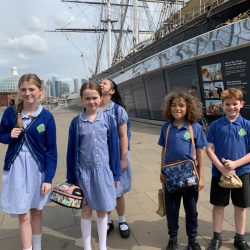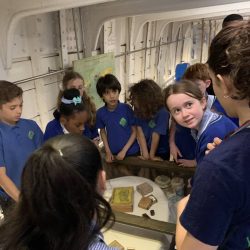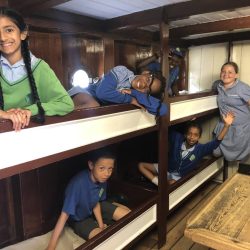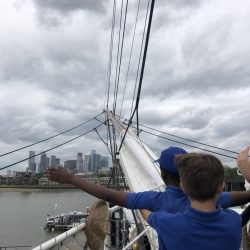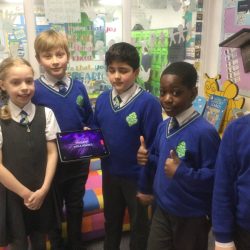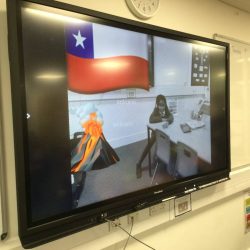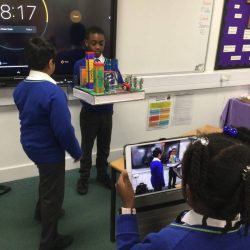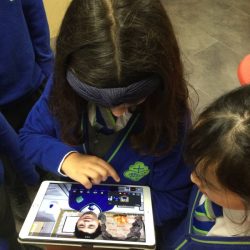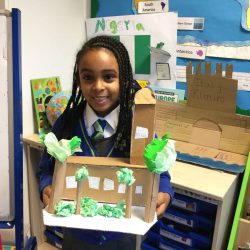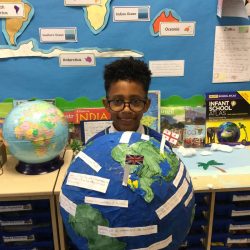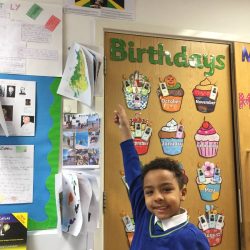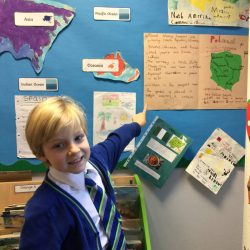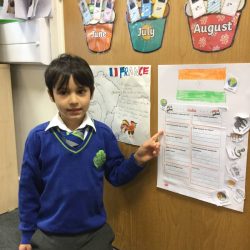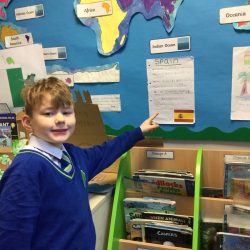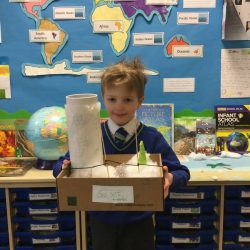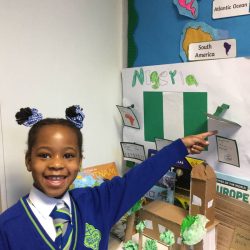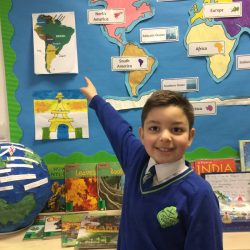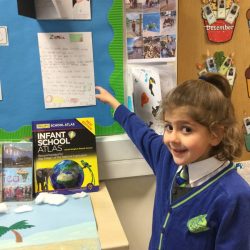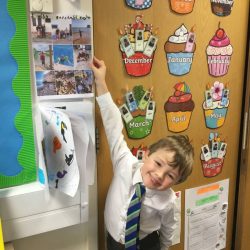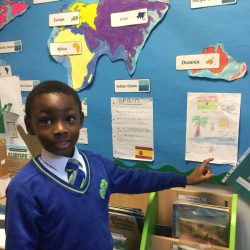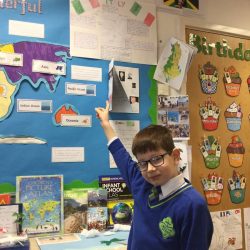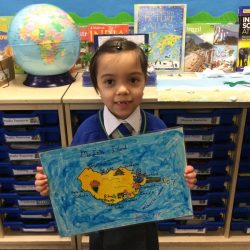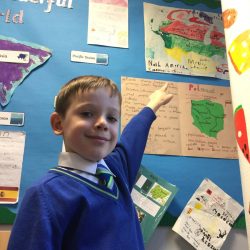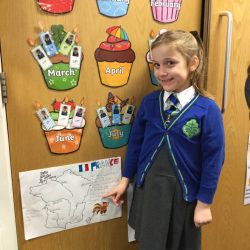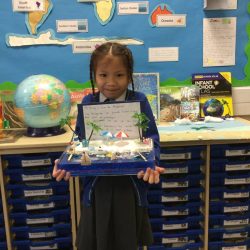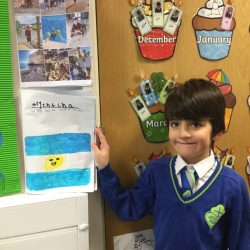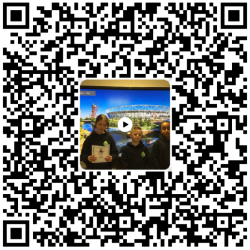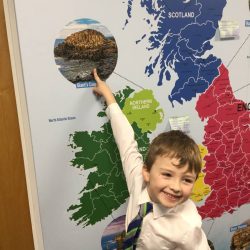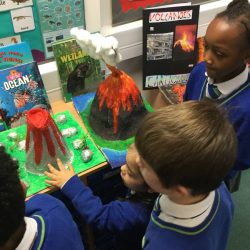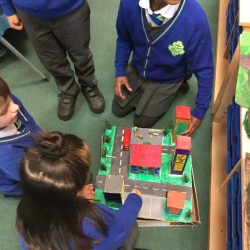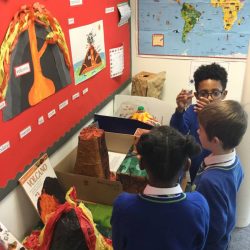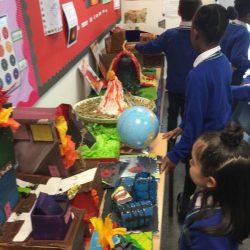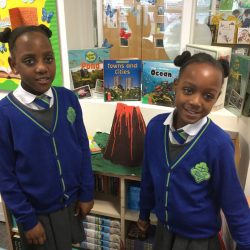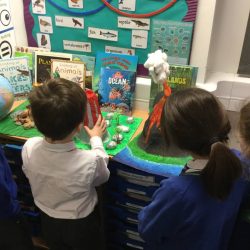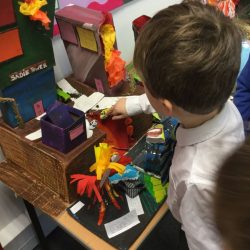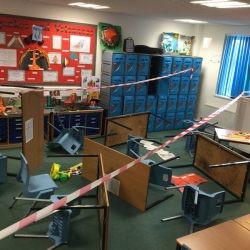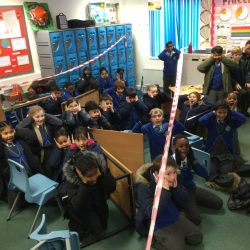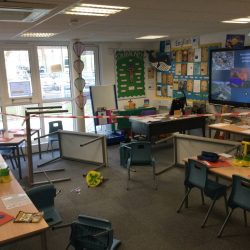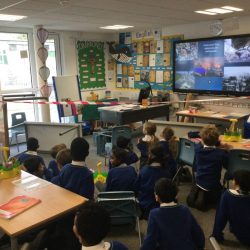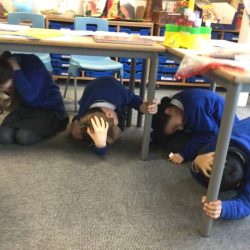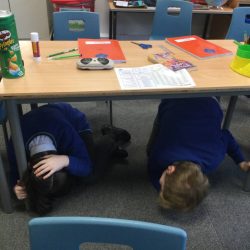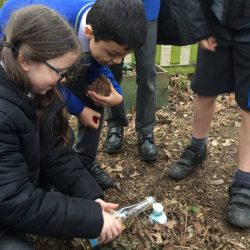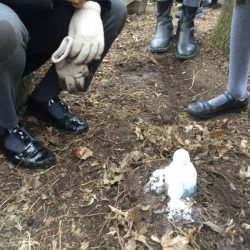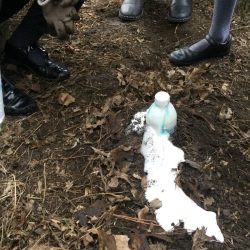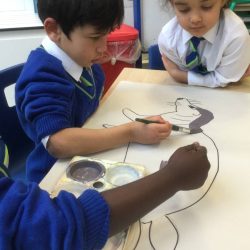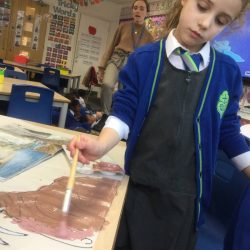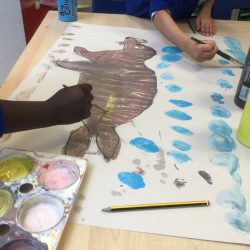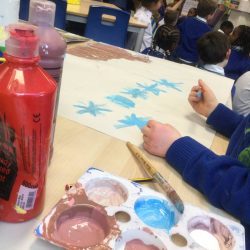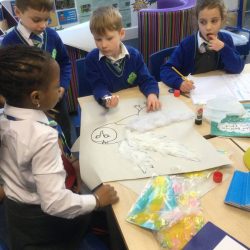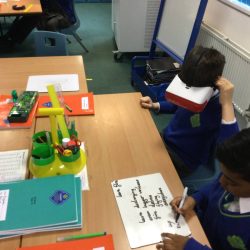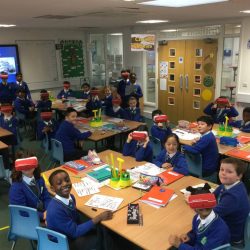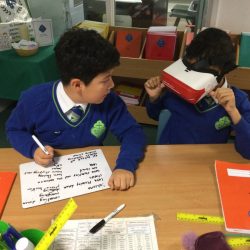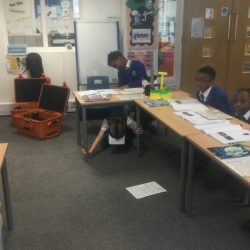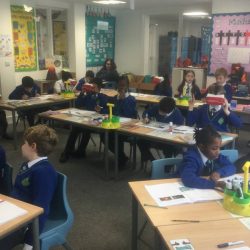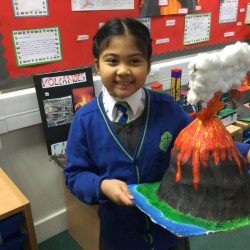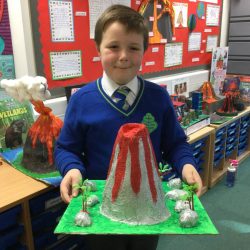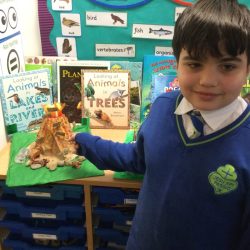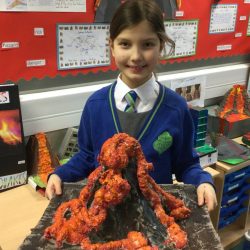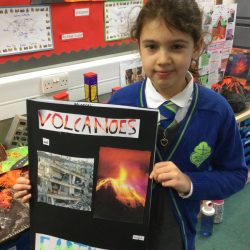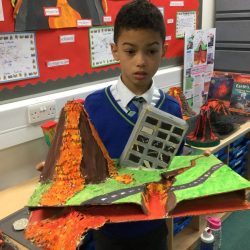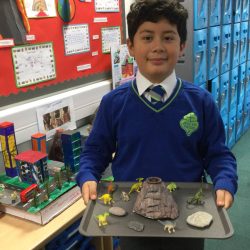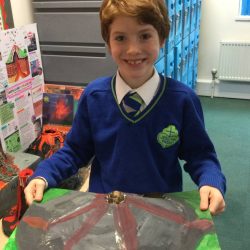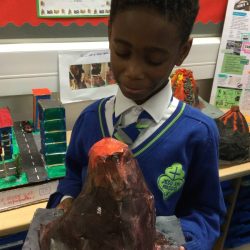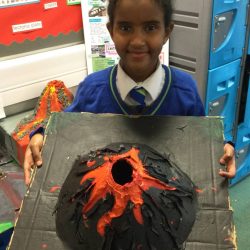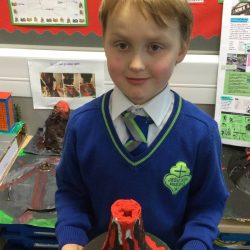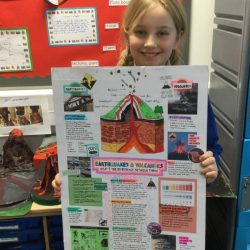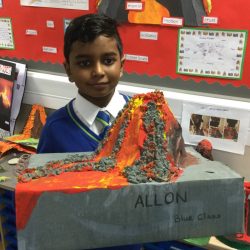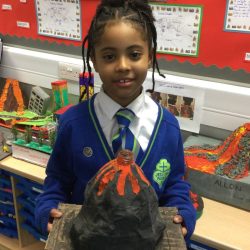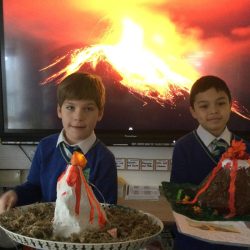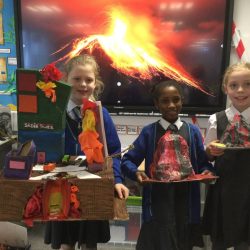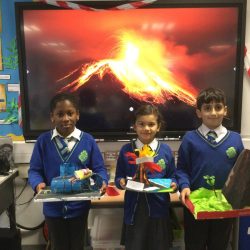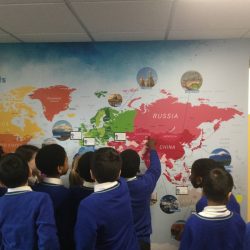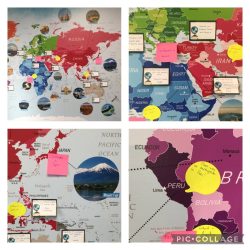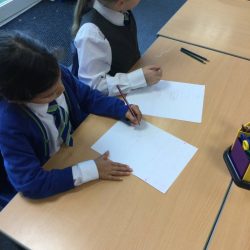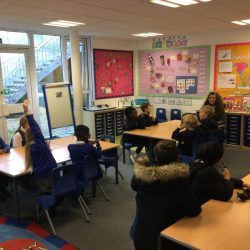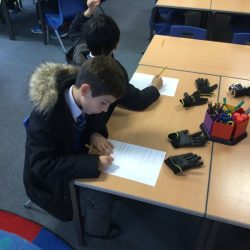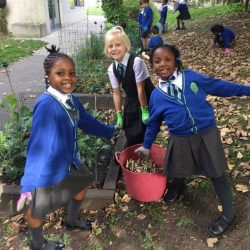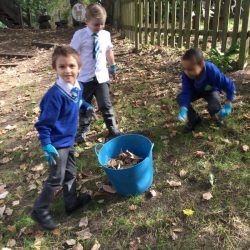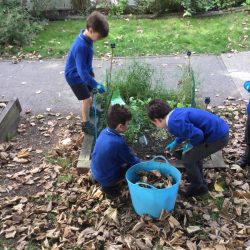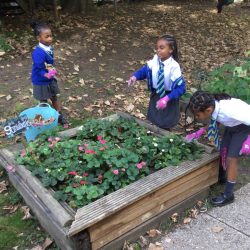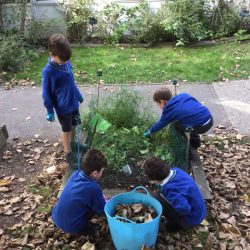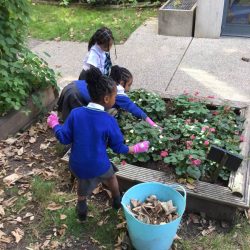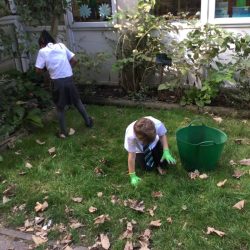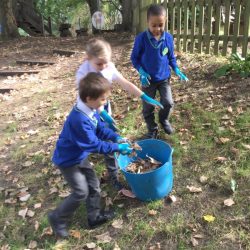Here at St. Joseph’s, we aim to provide a high-quality Geography education which will inspire pupil’s curiosity and fascination about the world and its people, hopefully remaining with them for the rest of their lives.
Curriculum Intent
Here at St. Joseph’s, we aim to provide a high-quality geography education which will inspire pupil’s curiosity and fascination about the world and its people, hopefully remaining with them for the rest of their lives. Teaching will equip pupils with knowledge about diverse places, people, resources and natural and human environments, together with a deep understanding of the Earth’s key physical and human processes. As pupils progress, their growing knowledge about the world should help them to deepen their understanding of the interaction between physical and human processes, and of the formation and use of landscapes and environments. Geographical knowledge, understanding and skills provide the frameworks and approaches that explain how the Earth’s features at different scales are shaped, interconnected and change over time.
Whole-school curriculum map 2025-2026
Aims
Nursery and Reception
As part of the EYFS Framework, children are taught all about ‘Understanding the World’. This involves guiding children to make sense of their physical world and their community. The frequency and range of children’s personal experiences increases their knowledge and sense of the world around them – from visiting parks, libraries and museums to meeting important members of society such as police officers, nurses and firefighters.
In addition, listening to a broad selection of stories, non-fiction, rhymes and poems will foster their understanding of our culturally, socially, technologically and ecologically diverse world. As well as building important knowledge, this extends their familiarity with words that support understanding across domains. Enriching and widening children’s vocabulary will support later reading comprehension.
The most relevant statements, which are pre-requisites for Key Stage 1 Geography, are taken from the following areas of learning in the 2020 Development Matters framework:
- Mathematics
- Understanding the World
- Communication and Language
- Personal, Social and Emotional Development
Key Stage 1 & 2
The national curriculum for geography aims to ensure that all pupils:
- Develop contextual knowledge of the location of globally significant places – both terrestrial and marine – including their defining physical and human characteristics and how these provide a geographical context for understanding the actions of processes
- Understand the processes that give rise to key physical and human geographical features of the world, how these are interdependent and how they bring about spatial variation and change over time
- Are competent in the geographical skills needed to:
– collect, analyse and communicate with a range of data gathered through experiences of fieldwork that deepen their understanding of geographical processes.
– Interpret a range of sources of geographical information, including maps, diagrams, globes and aerial photographs
– Communicate geographical information in a variety of ways, including through maps, numerical and quantitative skills and writing at length.
Curriculum Impact
Assessment of children’s learning in Geography is an ongoing monitoring of children’s understanding, knowledge and skills by the class teacher, throughout lessons. This assessment is then used to inform differentiation, support and challenge required by the children.
Summative assessments take place throughout the year and teachers record the progress and attainment against the National Curriculum expectations. Teachers use this information to inform future lessons; ensuring children are supported and challenged appropriately. This data is analysed on a termly basis to inform and address any trends or gaps in attainment.
Final end of year assessments are made using assessment criteria that has been developed in line with the National Curriculum. Thus identifying the level in which the child is working.
Below you will find the whole school subject overview and progression frameworks for this area of the curriculum.
Year 2 – Volcanic Eruptions! 27th September 2024
This week, Year 2 have been working hard in their Oracy and Current Affairs lesson. They have learnt all about the volcanic eruptions in the Iceland town Grindavik that occurred on 14th January 2024 this year. Today they worked in groups to present their own news report! We all think they did brilliantly!
9th November 2023: Weather and Climate
During the mid-term break, Green and Emerald classes created some wonderful projects for their upcoming topic in Geography – Weather and Climate. These wonderful creations show how much knowledge the Year 3s already have about this topic – from climate zones around the world to the different forms of precipitation! They can’t wait to learn more.
6th October 2023: Our Wonderful World
This half-term in Geography, Year 2 have been learning about ‘Our Wonderful World’. The children also created some wonderful projects at home and brought their work into school to go on display. We had fact files, flag bunting, globes, recipes, a model of Cotopaxi volcano in Ecuador as well as lots of beautiful 2D and some 3D artwork. Well done everyone for working so hard!
7th July 2023: Year 6 eco-warriors
As the end of their St Joseph’s journey is nearing, the Year 6 children wanted to give back to the school this week so they all set out on a task to improve our school grounds. This included weeding, litter picking and organising outdoor resources. Well done to all involved!
4th July 2023: Party for the USA!
This week in Year 4, we celebrated the 4th of July as part of their Geography topic; The Americas. It was a brilliant day filled with games, sports and fun! The children began the day with a treat from Mrs Roberts; ‘Jelly Bellys’! They had their own Jelly bean and were asked to guess the flavour. Luckily, they were the tasty ones rather than ‘Bertie Bott’s Every Flavour Beans’. Mrs Roberts told the children that the previous American president Ronald Regan had loved this treat and had a special jar to offer to his White House guests. Next, the children learnt about the history of American Independence Day, researching how the Declaration of Independence first came about and the range of ways American people celebrate this day. The children then used this research to create their own Kahoot quizzes about the celebration.
3rd July 2023: Natural History Museum
On Monday, the Year 3 travelled to the Natural History Museum in South Kensington to explore some of the exhibits on rocks, fossils, and coasts. In addition, they were able to explore other topics covered over the course of their time in school. The children spent two hours exploring the amazing halls of this fascinating museum as it had lots of interactive activities for pupils to take part in, including the earthquake experience. Recently in Geography, pupils completed a case study on the coastal town, Lyme Regis. In this case study, pupils discovered that Lyme Regis is well known for fossil hunting. Pupils were amazed to make links to their learning about fossils, ammonites, and Mary Anning on this trip to the museum.
27th June 2023: Maritime Greenwich
On Tuesday, to support us them with their current Geography topic on global trade, Year 5 got the tube and DLR to the Cutty Sark and National Maritime Museum in Greenwich. The children were taken on a tour around the Cutty Sark and found out fantastic facts about its history including the fact that it is one of the most famous ships in the world and could transport 10,000 crates of tea! The National Maritime Museum was jam packed with more fascinating information including a section on ‘Polar explorers’ and travel during the Tudor times.
10th March 2023: Amazing adverts
This week, Year 4 had the opportunity to join the world of producing, marketing and editing when they were tasked with creating their own interesting video advertisements. Year 4 were joined by the team from Three Discovery, who taught them how to create and edit their own videos. We focused on the theme of Volcanoes and Earthquakes, so the children were able to share all of the interesting facts they had learnt.
They began by experimenting with the range of features in the app, working out how to add captions and pictures, record videos and create special effects. Then, they decided on the content they would like to include. They rehearsed their facts and then it was time to record! The children worked together to record their videos and then added pictures, captions, transitions and music to bring these advertisements to life.
The final clips were fantastic and really showed how much knowledge the children had obtained from topic.
3rd March 2023: Blue class assembly – Earthquakes and Volcanoes
Blue Class performed their assembly entitled ‘Earthquakes and Volcanoes’ and it was fantastic. The children spoke confidently and sang beautifully. They informed the audience about the interesting facts they have been learning about in their Geography topic. They taught us about earthquakes; how they occur, how they are measured and how to prepare for earthquake survival. They also presented information on volcanoes; retelling the story of the eruption of Mount Vesuvius and explaining the different types of volcanoes.
The children were mindful of the recent earthquake which affected Turkey and Syria, and we prayed for all those who were suffering as a result of this. Thank you to all the Blue Class parents and guardians for all their support in helping the children prepare. We are very proud of them for this brilliant performance.
8th February 2023: Our Wonderful World
This half-term in Geography, Year 2 have been learning all about the world. They have learned about the oceans, continents and have even compared aspects of human and physical geography such as landmarks and weather in the UK and Ecuador. The children have also been busy making their very own projects on a country of their choice. They were keen to share their hard work on a wide range of countries such as Brazil, Italy, Poland, Zambia, Ghana, The Philippines, Nigeria and Argentina. You can see some of their amazing projects below!
3rd February 2023: Sustainability research
In Geography lessons this week, Year 5 conducted research and presented their findings about the sustainability efforts of the London 2012 Olympic Games. You can watch them by scanning the codes above. This is part of their current topic which provides an opportunity to investigate changes that have occurred locally in the recent past.
3rd February 2023: Diamond class assembly – Our Wonderful World
This morning, Diamond class performed an assembly all about our Geography topic – ‘Our Wonderful World’. The children sang beautifully about the continents and read all of their lines clearly and confidently. They also prepared some lovely artwork and taught parents how to speak in different languages. Well done to everyone!
See the video below to watch the assembly:
2nd February 2023: Future volcanologists and geographers
In Geography, Year 2 have been learning about the similarities and differences between the UK and Ecudaor. This week, the children found out what a landmark is and discovered many new landmarks in both countries. We were even able to use our school’s giant world map to identify the Giant’s Causeway in Northern Ireland. One child asked, “Is that made of basalt?” which blew Mr. Drumm away. The children also enjoyed learning about Cotopaxi, an active volcano in Ecuador. As the children have shown such a keen interest in volcanoes, we took the opportunity to visit the Year 4 classes as the children there have made some spectacular volcano models. The Year 2 children were absolutely blown away by them! Miss Clarke was impressed with the answers she received when she asked the Year 2s some tricky questions about volcanoes. One child even knew about the destruction and burial of Pompeii in Italy. Some children were so keen to find out more that they borrowed books about volcanoes from the library this week!
2nd February 2023: Dynamic earth
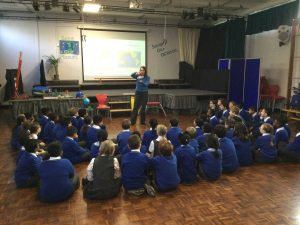
Year 4 celebrated an ‘Earthquakes and Volcanoes’ day this week which was very exciting! They began the day with a presentation from Miss Roberts, who has actually experienced an earthquake. She discussed her experience, commenting on the safety procedures she had to take. She talked to the children about Yellowstone and the famous geyser which erupts every 48 minutes! Then they got to touch some rocks, which could be found near volcanoes, before learning about visitng a volcano. Some procedures you might take are; wearing special shoes, gloves and long trousers when visiting. Top tip: Watch out for pockets of marshmallows – you can roast marshmallows but don’t eat them due to acidic sulphur!
Next, the children went outside for breaktime and would you believe it – an earthquake destroyed our classrooms! They came back in to examine the damage which had taken place. We displayed the Richter scale and the children discussed the magnitude of the earthquake which had occurred. We decided it was between 3 and 4 on the scale, an earthquake which had caused some minor damage.
Incase of another one, the pupils decided we needed to know how to stay safe during an earthquake. Therefore, the children practice the ‘drop, cover and hold on’ drill. When the siren sounded, they dropped to the ground, crawled under the table and waited for the sound to stop. We discussed the importance of protecting our heads and vital organs. Then, the children made posters with advice for earthquake safety, including; what to pack in an emergency kit, how to respond when an earthquake begins and how to examine the damage when the vibrations stop.
In the afternoon, the children carried out debates on the advantages and disadvantages of living in the vicinity of a volcano. Advantages included fertile soil, tourism and geothermal energy. However, they eventually decided that the disadvantages; such as destructions of homes and roads and risk of death or injuries, outweighed the good.
After this, we went outside for our geyser and volcano explosions. The children put mentos in bottles of diet coke and watched as the foam shot up into the air – poor Miss Clarke was nearly soaked! Then the children made their own volcano explosions. They buried their bottles in soil and added a mixture of vinegar, soap and bicarbonate of soda, which created a foamy explosion.
1st February 2023: Year 1 travel to the polar regions
Year 1 have been researching and imagining what it would feel like to travel to the polar regions. They have learned about the Arctic and Antarctica, as well as many of the amazing creatures that live in those areas. To link to our topic of Famous Explorers in History, we have talked about what an explorer might need to pack to go on an adventure to the North or South Pole. The children labelled the different features of a penguin this week and they have created beautiful pictures of polar animals to add to our display.
We are so glad that our school is much warmer than the Polar Regions! Well done Year 1!
27th January 2023: Experiencing real-life volcanoes and earthquakes!
We experienced real volcanoes and earthquakes this week in Year 4! Well… almost. The children had the opportunity to use our VR headsets to witness simulated earthquake and volcano scenes in order to bring their topic to life. First, they found themselves in a house watching a TV counting down until an earthquake was about to occur. They observed objects falling and the building started to shake as the earthquake hit, while the words ‘drop, cover, hold on’ rang in their ears. It was so realistic some of the children even got under their desks to take cover!
Then, they found themselves flying over an active volcano. They saw the lava spurting out of the crater and rolling down the mountainside, while ash clouds filled the sky. The pupils described the spectacle to their partners, who took notes on their whiteboards. Then, they recounted their experiences together. The children have also been very busy with their projects at home. You can see some of their masterpieces below!
13th January 2023: Locating earthquakes around the world
In Geography this week, Year 4 have been working on their new topic ‘Earthquakes and Volcanoes’. They started off by labelling the parts of the earth and then discussed how earthquakes occur. The children were able to use geographical language to explain the process of how earthquakes occur. After this, they explored tectonic plates and drew the different plates onto a world map. They used an earthquake spotting map to plot recent earthquakes, taking note that these usually occur along plate boundaries. The children loved using our school’s world map to find and discuss the location of earthquakes around the world.
9th November 2022: Eco-Warriors hold a ‘mini COP27’
This week, our school eco-warriors met with Miss Sophia and Mr. Drumm to discuss climate change and what we can do to look after our precious world that God has given us. We talked about the Conference of Parties 2027 or COP27 which is currently being held in Egypt. We also discussed what world leaders are doing to tackle the problems associated with climate change. After this, we held our own ‘mini COP27’ and children worked in groups to debate certain topics such as deforestation, sea-level rise and melting ice-caps.
23rd September 2022: Autumnal changes
This week, Year 2 had an outdoor workshop with our specialist environmental teacher, Miss Sophia. They recalled from Year 1 that during the season of Autumn, some trees start to change and also some animals might soon start hibernating as it gets colder. They also learned how to tell the difference between an old tree and a young tree. The children had some good ideas such as: “There are more cracks on old trees” and “Older trees might be taller” but Miss Sophia was amazed when someone suggested “Older trees are wider”. The children had lots of fun and can’t wait for their next session with Miss Sophia!

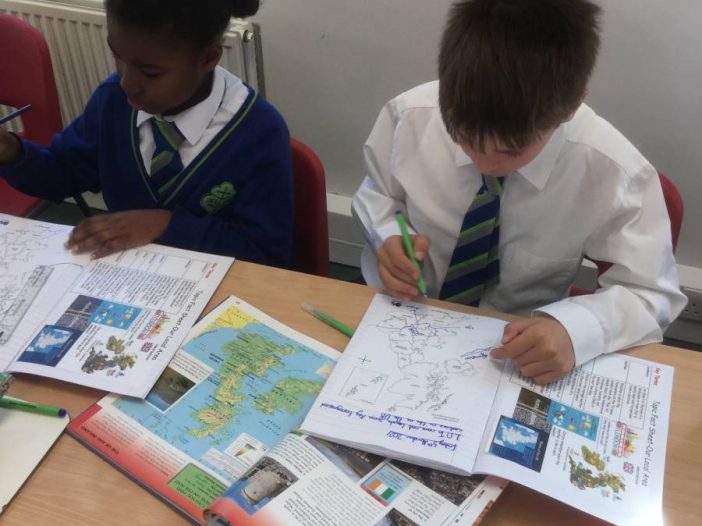
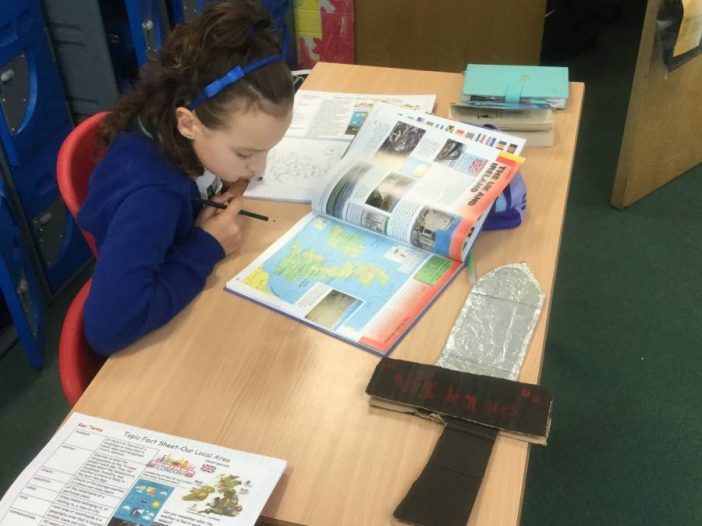
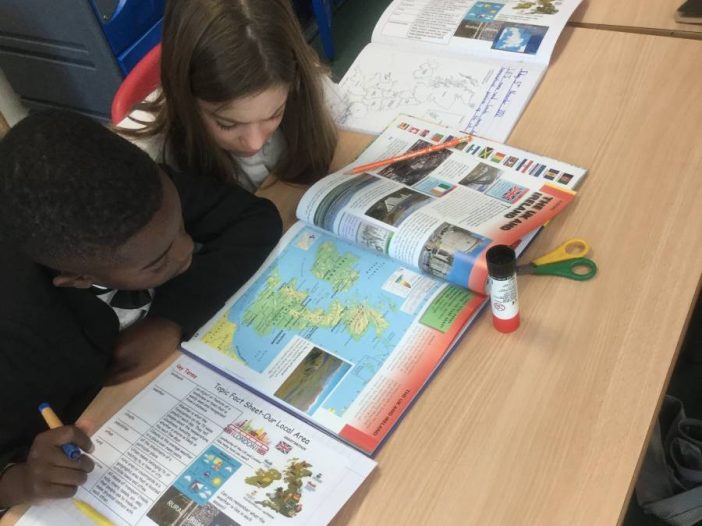
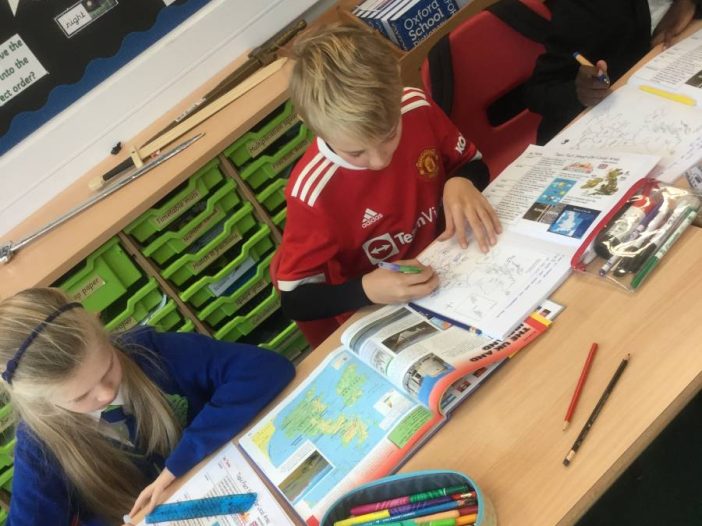
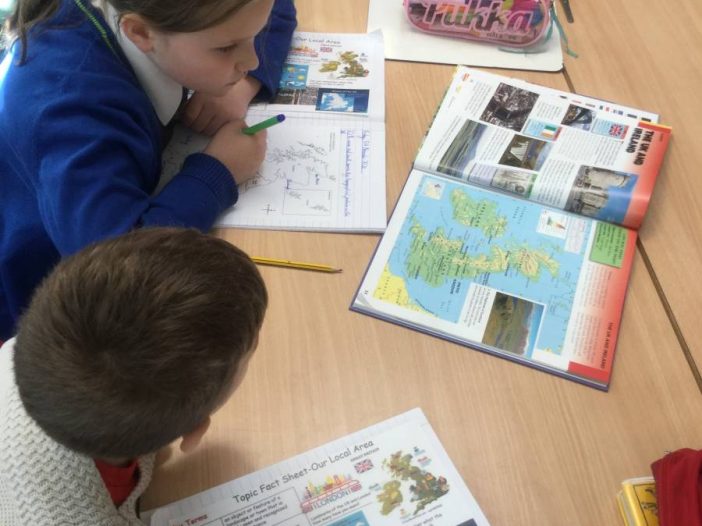
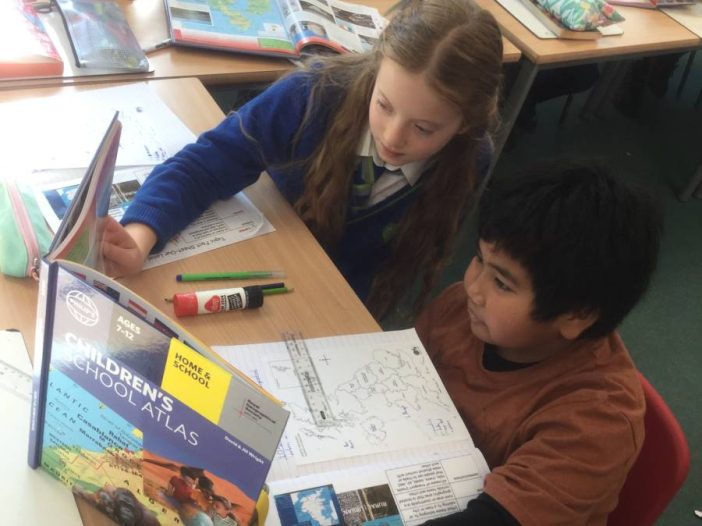
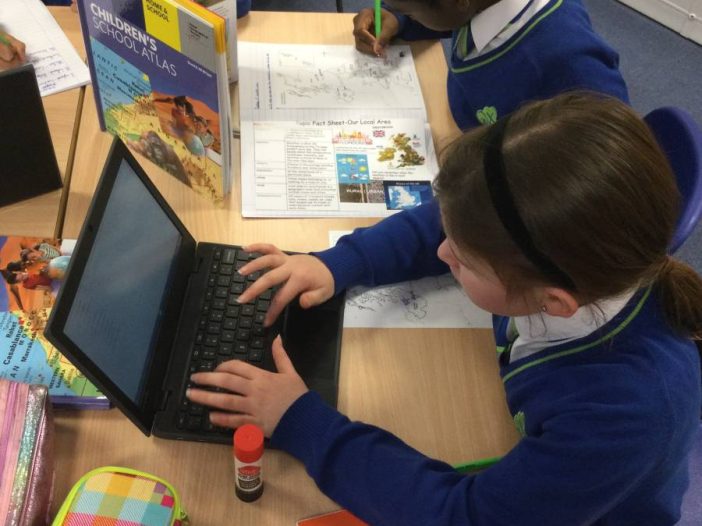
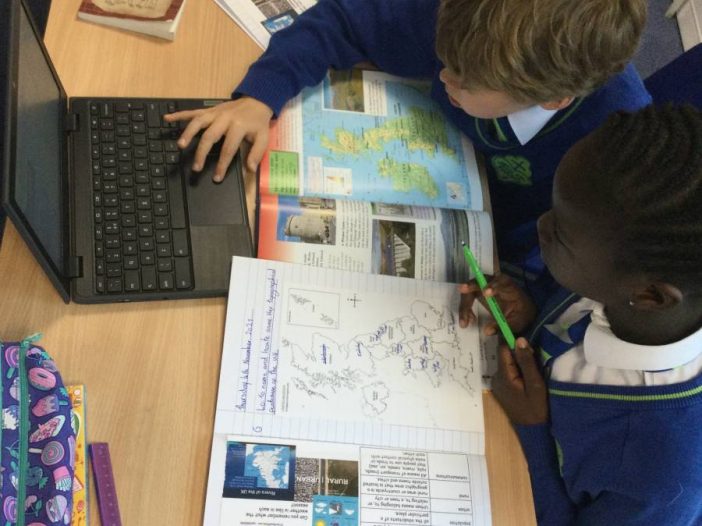
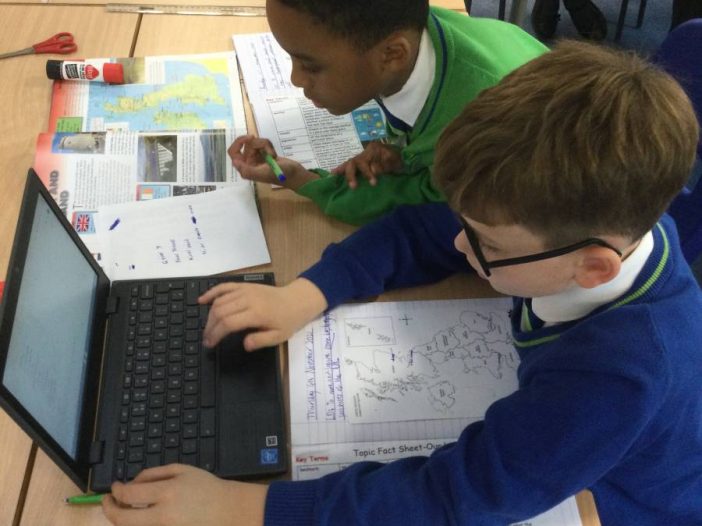
![IMG_0454[1]](https://st-josephs.islington.sch.uk/wp-content/uploads/2021/11/IMG_04541-702x526.jpg)
